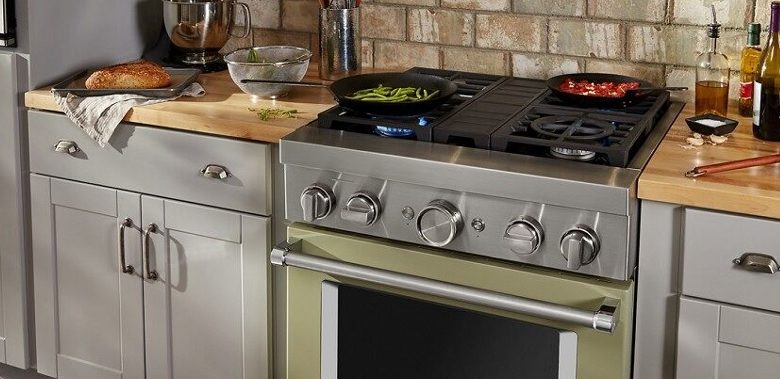Gas vs. Electric Range: Which is Right For Your Kitchen?

Perhaps your range has cooked it’s last meal, or perhaps you want to replace your stove as part of a kitchen remodel. When you find yourself shopping for a new stove, one of the most important questions is, gas or electric.
According to Peter Grenier of New Hampshire, both have their advantages. Assuming you have natural gas available, which only about 50% of homes in the U.S. do, it comes down to your cooking style and personal preference.
Is Gas Really Better?
You see gas stoves on cooking shows, and hear chefs rave about them. However, this doesn’t mean they are the best option for the typical household. According to Consumer Reports, electric stoves outperformed most gas stoves in their tests.
Peter Grenier of New Hampshire notes that the best gas stoves performed as well or better than electric ranges, but there were also more poor performers in the gas stove category. What does this mean for you? It means that gas isn’t required to get a stove that works well. You shouldn’t feel obligated to choose gas because it’s “better”. In most cases, it’s not.
The Advantages of Gas
Gas ranges do offer some advantages, but not everyone will find them necessary. First, gas provides excellent temperature control. An electric stove works by heating up the coil, or cooktop. When you change the temperature, it takes time for it to adjust.
Gas, however, heats with direct flame. When you adjust the temperature, it adjusts the flame. This means the heat is instantly adjusted. If your cooking style involves fluctuating between high and low heat, a gas range may be what you need.
The other advantage of gas is that you can do things you can’t do with an electric stove. A gas range allows you to flambé, toast, and char. You can even grill on a gas range. If you enjoy these types of cooking, a gas stove may be the best choice for you.
However, if you don’t have dreams of being a gourmet cook, a gas range isn’t really necessary.
The Downsides of Gas
Peter Grenier of New Hampshire says there are some downsides to gas cooking. The first concern is safety. Gas uses an open flame, which makes it more hazardous than an electric stovetop.
Of course, an electric eye can start a fire as well. Neither are fool-proof. Lay a dish towel on either range while the heat is on, and you’ll have a fire on your hands. Gas also has the added concern of gas leaks. This is rare, but it is something you should be aware of.
The other major downside to a gas range is clean up. Most electric ranges today have a smooth cooktop. You don’t have to worry about food particles falling into the eye. There’s no burnt mess to clean. Just let the stove cool, and then wipe it down.
Gas ranges, on the other hand, have eyes. This makes everyday clean up a bit more time-consuming. You’ll also need to wipe the bottom of the eyes occasionally, because food inevitably finds its way down there.
Peter Grenier of New Hampshire
Peter Grenier of New Hampshire began working in the construction business when he was 16 years old. Since then, he’s done remodels and new construction. 10 years ago, he began the company Wicked Good Woodworks, which manufactures and installs cabinets.




